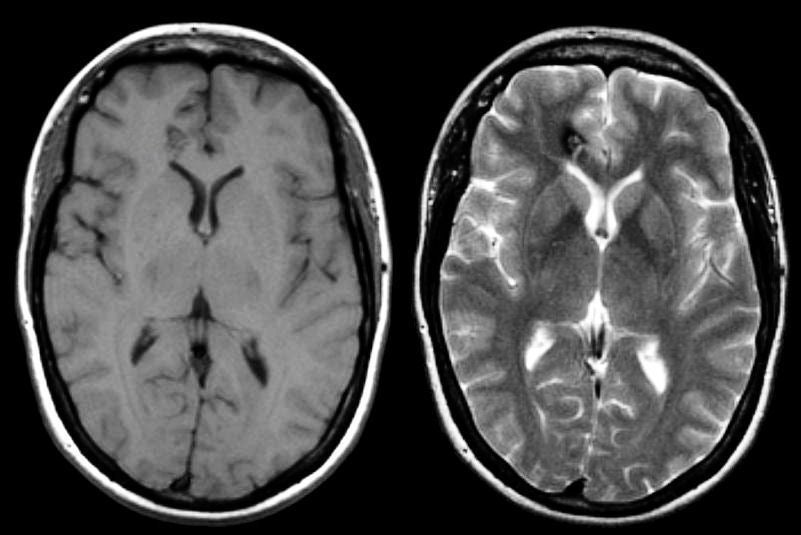

![]()
| Venous Malformation (Angioma):
(Left) T1-weighted axial MRI; (Right) T2-weighted axial MRI. Note the abnormal signal adjacent to the corpus callosum and beneath the cingulate gryus.
The signal is dark on both scans.
This pattern of being dark on both T1-
and T2-weighted MRI is characteristic of hemosiderin, the residual
of old blood. This is the picture of a small, remote intracerebral hemorrhage. This lesion is a venous angioma. Venous angiomas are congenital malformations of the cerebral veins, composed of several small veins that join to drain into a larger venous trunk which then drains into a dural sinus. On CT and MRI scans, venous angiomas enhance with contrast, and have the appearance of a "medusa head". They are associated with other vascular malformations in about 15-30% of patients, most frequently cavernous angiomas. Most times, they are incidental findings on brain imaging. However, with the advent of MRI and its high sensitivity in detecting remote hemorrhage, venous angiomas are more often recognized as a source of intracerebral hemorrhage. Thus, they are a potential etiology of seizures, focal neurological findings, or rarely symptomatic intracranial hemorrhage. |
Revised
11/29/06
Copyrighted 2006. David C Preston